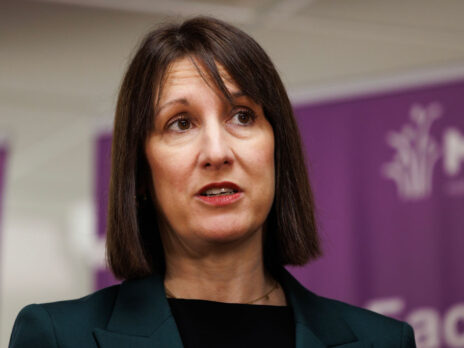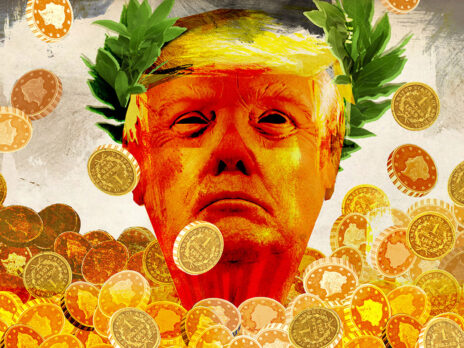Here are three questions for a Christmas quiz about England for my fellow citizens to ponder over. 1. Who do you call if you want to call England? 2. Three men, a left-winger, a right-winger and a centrist, went into a pub. They were known as Cummings, Corbyn and Starmer. What is the name of the pub they drank in? 3. Why is it if you’re an English-born liberal or progressive who reads the New Statesman you almost certainly don’t “feel English”?
I’d like to set about answering these questions in reverse order. The last is most baffling and I can best illustrate it with a story. In the aftermath of Brexit, I joined up with the psychotherapist Susanna Abse to discuss what had happened at a gathering in the Tavistock Clinic. I talked about how Brexit was an English vote and that the only route back to Europe was by England becoming a normal country in which its citizens embraced the diverse traditions of their own nation. The discussion that followed was heartfelt and sensitive, but as far as my main argument went, I completely failed to convince. Time and again people stood up and said they did not feel English, or that England’s colonial history was something they could never embrace, or that Englishness was intrinsically racist, and they could have no truck with it or nationalism.
To my great relief, however, towards the end, a woman stood up and said that she was French and had lived in this country for many years. The record of French colonialism, for example in Algeria, was worse than anything done in the name of the British empire, but she would not dream of denying her French identity in the way the English participants were doing.
But they were typical of this country. What is the matter with us? If you are American, Italian, Chinese or Irish, you don’t deny or refuse your nationality even when you combat its worst features. You recognise it as something whose culture shapes what you are. It does not mean you are a “nationalist”. The same is true of England’s largest neighbour within the UK. You can oppose Scottish nationalism, for example, while passionately identifying as Scottish. Gordon Brown has famously spent a lifetime doing both.
It is a specific English syndrome, this denial of “feeling English”. Indeed, it is in fact a claim to uniqueness. Which is why neighbouring nations often see it as hypocrisy.
One way to identify what has happened is by asking fellow Brits how they feel about their different identities. Ask a Welsh person if they feel more Welsh or more British and it will not be a problem for them to rank their different identities in order of importance, which nowadays may include being European. They may not have already ranked whether they feel Welsh first and then British, or more British than Welsh. But asking them to put their identities in a subjective order of importance makes perfect sense. And, of course, these hierarchies of importance can change through time – part of the answer might be, “When I was young, I felt more British than Welsh; now it is the other way around.”
If, however, you ask the English the same question, many struggle to find an answer. They don’t distinguish being English from being British in the same way.
Centuries of imperial primacy have produced a fused identity: British on the outside and English within. Imagine it as a coin. The obverse is British; it’s the British navy, never the English navy, while the reverse is English – it’s the English countryside, never the British countryside. Just as it doesn’t make sense to ask which side of the coin is more important, it doesn’t make sense to the Anglo-British to ask them whether one is more than the other. They are “naturally” both at the same time. With the result that although they are English, in terms of birth, upbringing and residence, they don’t “feel” English – even though they may wax sentimental about an English garden or sense of humour.
It is a syndrome that has a deep historic tap-root that goes back to England’s primacy as the first industrialised nation. As England imposed itself on the rest of the British Isles and then the world as a whole, to create the largest ever empire, it set the standard for modernity. Everyone else had to mobilise to resist and catch up with us. They needed nationalism; we, the English, didn’t. We were the prime mover without the need for flag-waving.
So, when someone born or bred in England tells you – or perhaps when you yourself say – “I don’t feel English”, it is not just a claim to uniqueness, it is English nationalism.
If that’s the answer to the third question of our quiz, the answer to the second is related. The pub in which Cummings, Corbyn and Starmer drink from the same brew is called The Great Britain. For all their differences, they imbibe the shared erroneous belief that the way to solve the country’s problems is by deploying the power of the British state. They disagree over how. Cummings wants to shatter the civil service, Corbyn to deploy it as a force for good in the world, Starmer to make it work for everyone. But none wants to let go of the great British state itself.
While the country continues to be controlled by those who drink at the same pub, it is doomed. Because the prime source of the country’s problems is the British state itself.
An example to illustrate what this means: the cabinet repeatedly discusses the future of Northern Ireland. But when has it discussed the future of Birmingham, whose metropolitan area has twice the population? Now Birmingham’s city council is declared bankrupt and administrators are called in. They plan to sell off its youth centres and axe its youth support workers. One Brummie told BirminghamLive: “We are abandoning young people. This is a powder keg that will eventually explode and we will look back on this as the catalyst.” For England, this would be as major a question as Northern Ireland. If we had an English parliament and an English cabinet, it would indeed be a potentially defining concern: how does one prevent such a disaster? Instead, England is sidelined thanks to the “greatness” of being British, our cabinet hardly bothers with such issues and our Prime Minister flies around the world to show that we are playing a “leadership” role and “making Brexit work” instead of helping make Birmingham work; something that could actually be achieved.
While this continues, our country – I speak as an Englishman – will continue to be blighted by the disabling priorities of “being British”. Which is why whether you prefer Cummings, Corbyn or Starmer, if you are with them, you are in the wrong pub.
Which brings us to our first question. It’s a variant of an apocryphal remark attributed to Henry Kissinger when he wanted to mock the inconsequentiality of the European Union: “Who do I call, if I want to call Europe?”
Today, the answer to that question is Ursula von der Leyen. But what about my country? There is an English health service costing many billions; there is English Heritage, regulating our historic sites and buildings; our education system is English. “Have you ever wondered why no politician talks about rebuilding England?” asks the English Commonwealth website. “Why, when their housebuilding policies apply only to England, is it framed as ‘Rebuilding Britain’?… How is a pledge to build 1.5 million new homes in England the answer to Britain’s housing crisis?”
Back in 2011, Ed Miliband gave a speech to demonstrate his distinction as a young Labour leader. He said that henceforth members of the Labour Party could talk about England and English values. Interviewed afterwards, he was asked what was special about them. He mentioned the spirit of the Blitz and had to backtrack when it was pointed out that the docks in Cardiff, Belfast and Glasgow were also struck by the Luftwaffe.
Robert Jenrick hit a similar embarrassment when he tried to speak for England in his recent efforts to become leader of the Tory party while trying to avoid the obnoxious racism of a Powell-like claim that the English are a race. To their shame, many progressives laughed at him while he struggled to articulate the need to defend English distinctiveness. Caroline Lucas in Another England has addressed this from the left, drawing in part on arguments articulated by John Denham. She writes: “Perhaps the most serious danger that flows from this failure to acknowledge English political consciousness is the opportunity it provides for populist agitation.”
But what is English political consciousness? There is no such singularity. What is missing is any representative institution or assembly. Suppose there was one. Let’s call it a “house of commons”, a fine English name, in which the English come together in all their differences, black, white and brown, to debate their interests. One of which is to renew our traditions of local and regional solidarity that have survived centuries of pummelling and manipulation by a cynical ruling class.
The English question is simple and practical. It is not about becoming nationalist; it demands being normal, having our own government with its own telephone number.
What we don’t need are any more Scruton-style elegies against modernity or puncturing of the same by Alex Niven, however entertaining, or Starmerite versions evoking place without power as offered by Marc Stears and Tom Baldwin, or even the superb multiculturalism of Gareth Southgate’s England football team. England needs to declare its independence from the decadence of Westminster. We need to act, not examine our navel.
Although it seems a paradox, this will lead to a revival of Britishness which is a singular global culture. It is also the road back to Europe, which is why Farage and co fear it. Already it is clear that it is the settled will of the Scottish people that they should rejoin the European Union, euro and all. Once England has sloughed off its Great British past, once we English have become normal and can separate our distinct levels of identity like everyone else, then at last we can all leave the pub at which Cummings, Corbyn, Starmer and their successors are drinking away our democratic future.
Anthony Barnett’s books include “The Lure of Greatness: England’s Brexit and America’s Trump” (Unbound)
[See also: HR Britain: how human resources captured the nation]
Listen to the New Statesman podcast
This article appears in the 05 Dec 2024 issue of the New Statesman, Christmas and New Year Special 2024






